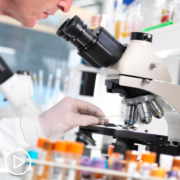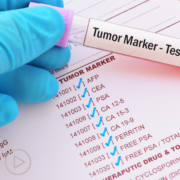How Can Prostate Cancer Providers Help Empower Patients? from Patient Empowerment Network on Vimeo.
How can prostate cancer providers help empower patients? Host Dr. Nicole Rochester and Drs. Yaw Nyame, and Petros Grivas share their perspectives on how health providers can work with patients to empower them to make more informed decisions in their treatment journeys toward optimal prostate cancer care.
See More From Best Prostate Cancer Care No Matter Where You Live
Related Resources:
Transcript:
Dr. Nicole Rochester:
I’m going to ask Dr. Nyame to elaborate on which is these fancy tests and these new technologies and things, and what we know is that a lot of times the patient themselves, if they are not aware of these particular tests, then because of all the disparities that we’ve talked about, they may not even be offered to them. And so a question for you, Dr. Nyame, how can we empower patients so that they don’t feel limited in their care, and how do we make them aware of these treatment options and diagnostic options?
Dr. Nyame:
You know that’s very challenging because Dr. Grivas and I see this in our clinical practice, we have patients who are very savvy, that’ll come in and say that “I’ve heard that there’s a PSMA in San Francisco. Do you have it in Seattle? If you don’t have it in Seattle, I’m going to go to San Francisco.” And for every patient I had like that, who might be, “Hey, have you read this latest article, I can have someone who has no idea of what’s going on with their diagnosis, and so how we create opportunities to bring those patients and know very little up to somewhere close, maybe not quite to the demanding the PSMA or a fancy scan level, but sophisticated enough to feel empowered in their health decision-making as something where I think we need to do research because we know that certain tools, navigation, advocacy groups can help in that arena, but I think that we need to understand what the tools are that patients want. What’s interesting is when you query patients, which we’ve done in a study and you say, “What are the most pressing issues for you in your prostate cancer diagnosis,” whether it’s in the localized setting or in the advanced or metastatic setting, the one thing that has resonated over and over again, irrespective of race is, “I need help making decisions, I need tools that will make it, me more efficient in how I make my decisions.” And so, I think without punting the answer too much, we need to do better, and I think part of that starts with listening. I do think that providers can be trained to provide that information in a more efficient manner. We do not…we as clinicians, are built into a system where the number of patients we see really correlates with how we get paid, and there’s not a doctor that doesn’t go to work excited to educate and build relationships with patients, that’s not the case, but there is a time crunch and I feel like in situations where there is a bigger gap and knowledge and understanding, we often don’t have enough time and built into our day to have the discussion, so for me, for a lot of my patients who I feel like have a lower understanding of what’s going on with regards to their prostate cancer diagnosis, it’s really important for me to build into our visit the understanding that whatever we don’t cover can be addressed at a later time and that we don’t have to make a decision with that at particular visit. So, when I think about this, it’s sort of like your favorite barbershop or your favorite grocery store, your favorite sandwich place, the relationships matter.
And I think when we talk about empowering patients to be advocates for themselves in their clinical visits, I think there needs to be an understanding from patients that if it doesn’t feel right, that they have options and to take their time in the decision. Prostate cancer, unlike other diseases, that Dr. Grivas and I treat doesn’t have to have the dial turn to 10 or 11 right away, and we need to make a decision because time is extremely sensitive, even in our most aggressive localized settings, which is what I treat, we have the opportunity to take weeks, if not months, to come to a decision.
Dr. Nicole Rochester:
Thank you, thank you so much, I appreciate that. And certainly, as a physician who’s also a health advocate, I strongly agree with what you said about if the relationship is not working, that there are options, and I know that that may not always be the case depending on where patients live, but I regularly encourage my clients to sometimes you have to look somewhere else, sometimes you have to get a second opinion or maybe even fire your doctor if the relationship is not mutually beneficial, so I appreciate you sharing that. Dr. Grivas, do you have anything to add in terms of how patients can take a proactive approach to their healthcare and how they can build this confidence we’ve been talking about and express their concerns to their medical team?
Dr. Grivas:
I think Dr. Nyame covered it so well. I think it’s critically important for all of us to recognize that the finding out the why is probably the key to answer those questions, why there is this distrust, why someone is not paying attention so her own health because they have to try to make ends meet and keep family fed during the daytime, and they don’t have time to think about their own health as Dr. Nyame mentioned before, at the same time, empowering the patient that they are the center of this relationship.
Why doesn’t Dr. Nyame go to the clinic in the morning is because of patients, so our training is patient-centered and our practice is patient-centered and our research is patient-centered, so the patient should feel that right from the door, that this is a service to them. And we’re doing what we’re doing to help their life being longer, longer survival, as we call it, or better, better quality of life, and listening to the patient’s needs is important because of the time crunch that Dr. Nyame mentioned before, I think many of us, probably all of us are within situations where we don’t have enough time to listen advocate-ly, what the person have to say, that’s why I think it’s important to have opportunities for separate visits and utilize better other mechanisms, exact mechanisms, patient navigation I think it’s a critical part of our care, social workers, case managers, financial counselors, nutritionist, genetic counselors, looking at genetics in for the disposition to cancer which is much more common than we think occurrences sometimes we be higher in some certain populations. Having this service available to patients, can help a lot because they will give them knowledge, and knowledge is power by itself, so give them the center, we’re here for them. Why they’re here, it’s because we want to help them and giving them also resources, they need to get now let’s information, when they feel they have more knowledge and they feel that they have control, they can communicate back and give feedback of how we can do better and also, what are the priorities of their needs, so we can address those, what matters to the patient, and this can apply to base and care, and also is what questions we’re asking? Research should be defined by patient priority, so all of those factors should be a dialogue with a patient, I think advocacy groups can be a great liaison to help us disseminate this concept and help again, empowering the patients. I struggle believe that explaining the why and giving knowledge, the data points in a simple and lay manner, can patients think being more in control.
Dr. Nicole Rochester:
I love the patient-centered focus, that is something that admittedly, we’ve gotten away from that to some degree in medicine because of the time crunches that both of you have mentioned, and I love that you said knowledge is power.






















